How to save money on petrol and diesel - 18 ways to reduce your fuel costs
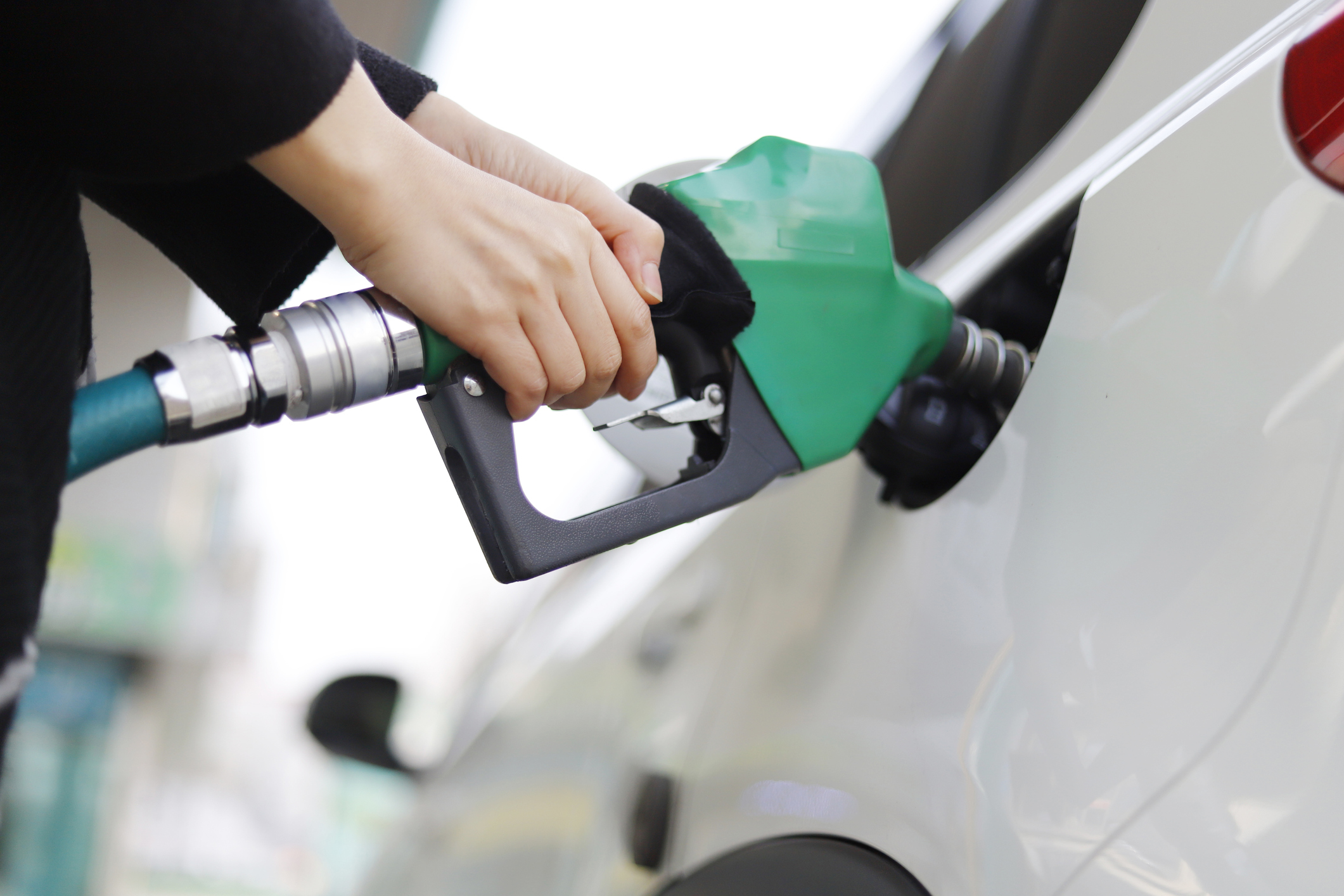

From rising energy bills to price hikes at the supermarket, we all feel the need to make our money go further. And it's never been more important to know how to save money. Improving your car’s fuel efficiency is one important way to do that. Here's how to save money on petrol and diesel.
If you found yourself wincing the last time you filled up the car, you had good reason. Petrol and diesel prices are at record highs, with the latest figures from RAC Fuel Watch showing that the average price for unleaded is 162.24 pence per litre and the average price for diesel is 175.94 pence per litre.
Russia's invasion of Ukraine, of course, has only pushed up the cost of fuel worldwide, making it even harder to find the cheapest fuel, and with the ongoing train strikes it seems like public transport might be out of the question too. To save a few quid on your fuel bills, try these tips for reducing your fuel consumption and improving your vehicle's fuel efficiency.
How to save money on petrol
1. Choose your petrol station wisely
Convenience is always tempting. But by driving a little further than your local garage, you could end up paying less for your petrol or diesel. There's a point where driving around looking for cheaper fuel becomes a false economy but it's always worth comparing prices locally before you fill-up.
According to the RAC Fuel Watch, these are the average prices of fuel in the UK at the moment. So, if you’re paying more than this, you may be able to find a better deal elsewhere.
Unleaded - 162.24 pence per litre Super Unleaded - 175.94 pence per litre Diesel - 175.94pence per litre LPG - 86.82 pence per litre
If you don't already buy fuel when you do your grocery shopping, it's worth making this a habit. Petrol is typically a few pence cheaper at supermarket fuel forecourts compared to petrol stations owned by the oil companies. And if you take out a supermarket loyalty card like a Tesco Clubcard and fill up when you stock up on groceries, you'll earn points for every pound you spend on fuel. Those points convert to money off your next tankful of fuel. You can also earn points by using your Clubcard to buy fuel at Esso garage as well.
GoodtoKnow Newsletter
Parenting advice, hot topics, best buys and family finance tips delivered straight to your inbox.
2. Check how much you get to the gallon
Unless you're a petrol head, there's a good chance you'll have no idea what your car's usual mileage is. But knowing your MPG - that's the number of miles you get per gallon of petrol or diesel - can actually help you to keep track of how much you're spending on fuel, and then make savings accordingly.
To work out miles to the gallon, note down your starting mileage. Record how many gallons of fuel you put in the tank before your next journey, and divide the distance you drive by the number of gallons of fuel added. Don't forget to take away the starting mileage from your final figure. Now that you know your vehicle's MPG, you can apply all this advice and then work out exactly how many more gallons per mile you can get with no roof rack and an empty boot...
2. Keep your tyres pumped up
Regularly checking your car’s tyre pressure will prolong the life of the tyre and improve fuel efficiency. Driving on underinflated tyres isn't just dangerous, it also uses more fuel.
“Tyres generally lose up to two pounds of air per month, so check their pressure every couple of weeks,” says Ben Scholes of used car retailer CarShop. “Research shows that if tyres are under-inflated by 20% - or around 6psi – between 3% and 10% more fuel is used. That would cost up to £1 for every 50 miles driven, at 50mph, in an average diesel car.”
Details on the correct tyre pressure can be found in your vehicle handbook, the driver’s door sill, or inside the fuel tank flap. As well as checking your tire pressure regularly, don't scrimp when it comes to your next tyre change. Choose energy-efficient tyres if your budget allows, as they help to reduce fuel consumption.
3. Buy new tyres
According to Kwik Fit, tyres account for up to 20% of your fuel consumption, so it’s important to choose the right ones. Tyres in the UK currently have an EU label that will tell you about wet grip, fuel efficiency, noise level, plus icy and snowy conditions.
Fuel efficiency is rated on a scale from A to E (as of 2021), with A being the most efficient. These tyres need less energy to roll and therefore burn less fuel. So if you need to buy new tyres, look for the EU label for guidance.
4. Clear out your boot to remove weight
When was the last time you checked what was in your car boot? Many of us drive around with unnecessary items stowed away, whether it’s a box of stuff you’ve been meaning to donate to charity, or sports equipment that you’ve forgotten about. But this extra weight can cause you to use more fuel.
“An extra 50kg in a vehicle reduces miles per gallon by up to 2%, so if you’ve got four sets of golf clubs in there you’ll be paying around £10 extra per week for fuel,” says Duncan McClure Fisher, founder and CEO of MotorEasy. “Have a good clear-out and remove anything you don’t need before travelling.”
Encourage the kids to get into the habit of taking their sports equipment, school gear and random beloved possessions out of the car with them every time you get home. Explain that they're doing their bit to reduce fuel consumption and, in turn, help the planet.
5. Remove the roof rack
Likewise, it’s worth removing your roof box when you don’t need it. Yes, it might be a pain, but roof bars and roof boxes create wind resistance and anything that affects a vehicle’s aerodynamics causes you to use more fuel.
According to the Energy Saving Trust, a large roof rack adds around 16% to a car’s fuel consumption when driving at 75mph, while a roof box adds 39%.
6. Half fill the petrol tank
Did you know that you can save money by only half-filling your petrol tank? This one's a bit contentious. And you're bound to have a relative who'll disagree. But the idea is that your car weighs more with a full tank of petrol than it does when the tank is half empty.
There's a lot of maths involved in proving this theory. And, of course, you have to factor in that it requires you to nip to the petrol station more frequently. But nevertheless, it's more fuel-efficient to drive with half a tank. Try it.
7. Use stop/start functions
“Where possible and where fitted, utilise the auto stop/start on your car, so it isn't left idling unnecessarily in traffic or when the vehicle comes to a stop,” advises Kamran Saleem, managing director of Motorserv UK. “If your car is not fitted with an auto stop/start function, consider turning off your car when sitting for a period of time.”
A study by the American Automobile Association revealed that using automatic stop/start functions improved fuel economy by up to 7% and also reduced carbon dioxide emissions.
8. Get the air con/windows balance right
Switching on the air conditioning in your car can increase fuel consumption - but so can opening windows so it’s important to get the balance right. “Air conditioning in a car consumes between 0.2 and 1 litre of fuel every 60 miles travelled,” says Scholes. “That’s up to £1.79 in an average diesel car and £1.67 if your car is petrol powered.”
It’s usually more efficient to open windows rather than use air conditioning when you’re travelling at lower speeds, up to around 30mph. However, the additional drag caused by open windows when you’re going faster means more fuel will be used, so it’s more economical to use the air con when you pick up speed.
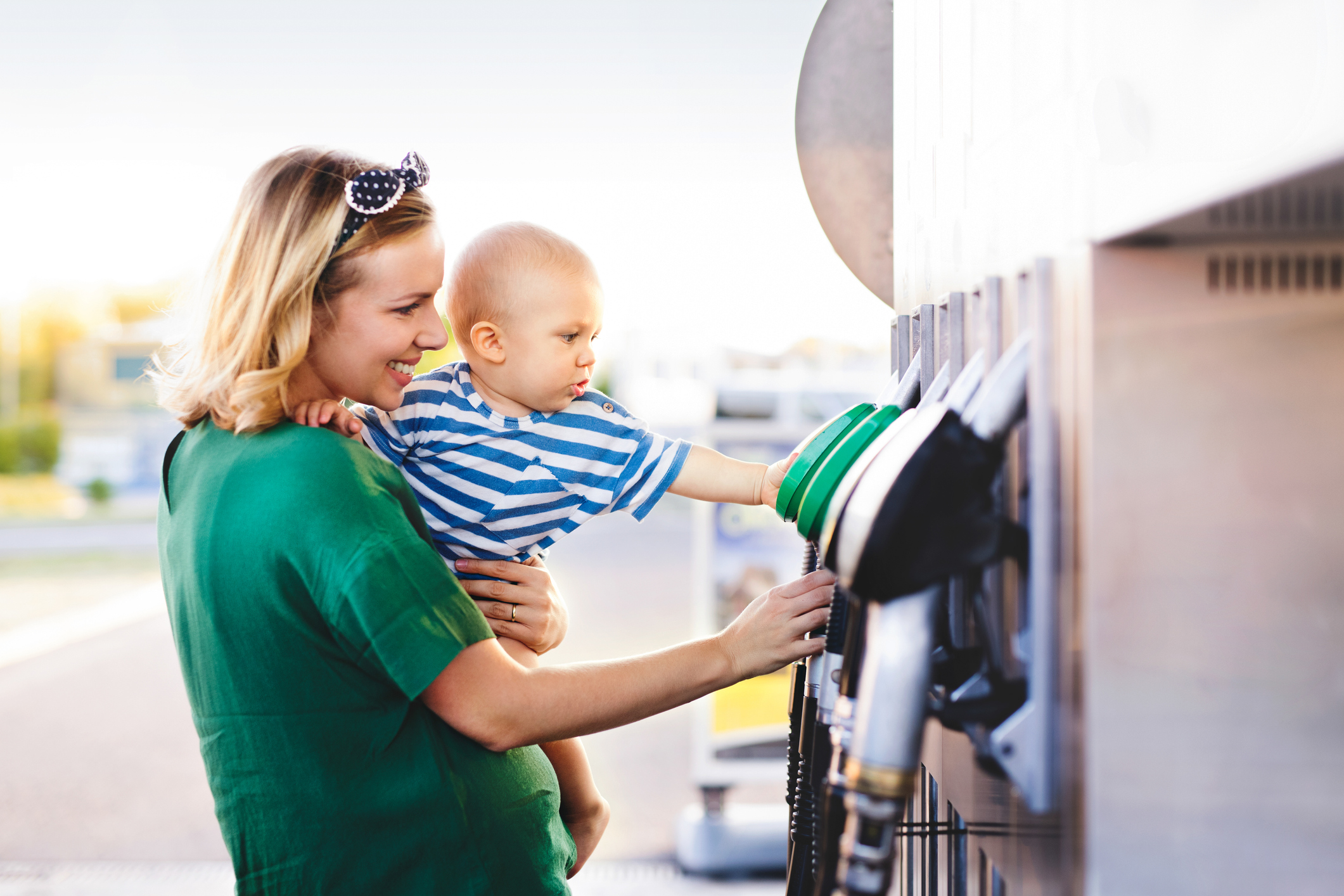
9. Maintain your car
Make sure you give your car some TLC and get it serviced in line with the manufacturer guidelines. Get any faults fixed quickly to ensure your car is running as efficiently as possible.
“Keeping your car in good condition is beneficial for a number of reasons, with saving fuel just one of them. An untuned engine can increase fuel consumption by up to 50%,” says Cuvva’s Loren Gould.
10. Check your wheel alignment
According to KwikFit, an annual wheel alignment check helps your tyres to wear evenly and last longer, adding up to 12,000 miles to the life of your tyre.
Tyre balancing helps to ensure the tyre spins evenly around the axle and having even tyre wear around the circumference reduces rolling resistance with the road. In turn, this helps improve your car’s fuel efficiency. Kwik Fit offers a free wheel alignment check, so there’s no excuse not to get it done.
12. Tighten the petrol cap
Simply checking that your petrol cap is closed tightly can be an effective way to gain some extra mileage. Like all liquids, petrol evaporates into the air when it gets too hot and if the cap isn’t tight enough, you’re bound to lose some fuel.
It might not make the biggest difference to your fuel bill, but it’s still worth making sure the cap’s tight whenever you fill up. After all, every little helps.
13. Use the right engine oil
It’s important to make sure you’re using the correct engine oil for your car - not only will it prolong your vehicle’s lifespan, it can also improve fuel economy. Your car’s handbook should tell you which oil to use.
“Modern engines are built with finer tolerances and therefore require thinner oils - those with lower viscosity – that can also improve fuel economy by around 3%. That’s over 30p per 50-mile journey, at 50mph, in an average diesel car,” says CarShop’s Ben Scholes.
“The rule of thumb is to change oil between 3,000–5,000 miles, but some vehicles and oil types will perform much better, giving up to 10,000 miles between changes.”
14. Switch off the extras to save cash
Heated seats are a lovely luxury in the dead of winter but such things come at a price. To reduce fuel consumption, switch off all the in-car extras - including air conditioning, headlights, demisters and yes, seat heaters - when you don't really need them. (Does anyone really need heated seats?!)
15. Drive with fuel economy in mind
There are plenty of steps you can take to improve your driving style which will also make your car more fuel-efficient. Sticking to a consistent speed, changing gear sooner, avoiding unnecessary braking, and accelerating smoothly are good driving tips that could also help to reduce your vehicle's fuel consumption.
Professional racing driver Rebecca Jackson is an expert on driving economically and told the RAC: "Accelerating from being stopped is very costly in fuel consumption terms and so is going up any steep incline. If you can keep moving slowly rather than stopping in traffic that’s good, but you do have to be conscious of not being a pain to other drivers by leaving too much of a gap behind the car in front. You need to listen to the engine to make sure you don’t use excessive revs but you need to use enough, so it’s a fine balance as you don’t want the car to be labouring too much either."
16. Don't be idle
Idling your car - that's sitting in a stationary vehicle with the engine running - isn't just wasteful. It's also damaging to the environment and illegal. Whether you're sitting in traffic, waiting at the school gates or picking up a passenger, always switch the engine off when the vehicle isn't moving.
The same goes for leaving the engine running on a chilly morning. Granted, it's a quick way to warm up the vehicle or clear the windscreen of ice. But a stationary vehicle with the engine running produces more harmful emissions than a car that's moving. Thus, idling is best avoided for the sake of the planet - and it certainly won't do your fuel consumption any favours.
17. Give the premium pumps a miss
We always thought the posh petrol pumps were full of better fuel. But unless you drive a very snazzy set of wheels, it turns out there's little benefit to choosing super unleaded over normal unleaded. So steer clear of the premium pumps at the petrol station and you'll save a few pence per litre every time you fill up the car with petrol.
18. Go electric
As money-saving steps go, this is a big one. Switching to an electric car isn't an option for everyone and electric vehicles are no silver bullet when it comes to reducing the cost of living, but it's a move that's guaranteed to cut your fuel costs.
Video of the Week

Heidi is a seasoned parenting journalist with over 15 years of experience. She has contributed to numerous UK national newspapers, including The Guardian, The Times, and The Telegraph. Her work has also appeared in a variety of print and digital magazines, such as Psychologies and Mother & Baby, where she was Shopping Editor for six years. In this role, she specialised in consumer features, including buying guides and baby gear reviews. Heidi is also a mum of three.
-
 14 surprising ways to spend your Tesco Clubcard vouchers - from restaurants and cinema passes to mini breaks and Disney+
14 surprising ways to spend your Tesco Clubcard vouchers - from restaurants and cinema passes to mini breaks and Disney+Tesco Clubcard vouchers can help you cut the cost of everything from groceries and travel to days out and cinema tickets
By Heidi Scrimgeour Published
-
 How to get Disney+ for free and save up to £79.90 a year
How to get Disney+ for free and save up to £79.90 a yearEven though the streaming giant ended its free trial offering, there are still multiple ways you can get Disney+ for free for up to 12 months
By Sarah Handley Published
-
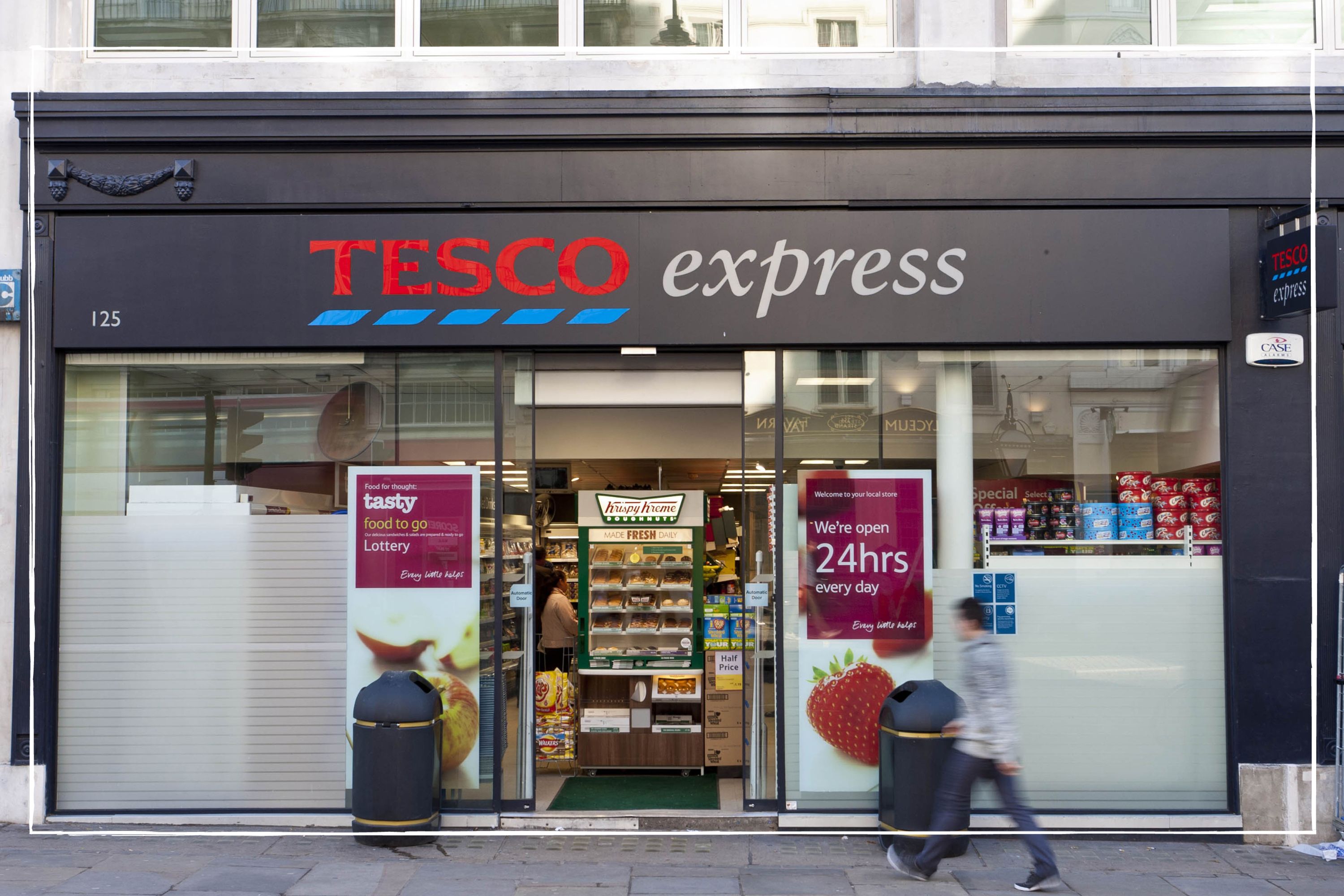 Is Tesco cheaper than Tesco Express? We did the same shop at each to find out
Is Tesco cheaper than Tesco Express? We did the same shop at each to find outWe find out whether Tesco is really cheaper than Tesco Express by comparing two like-for-like baskets, as well as analysing whether Clubcard prices are cheapest prices available
By Rachel Lacey Published
-
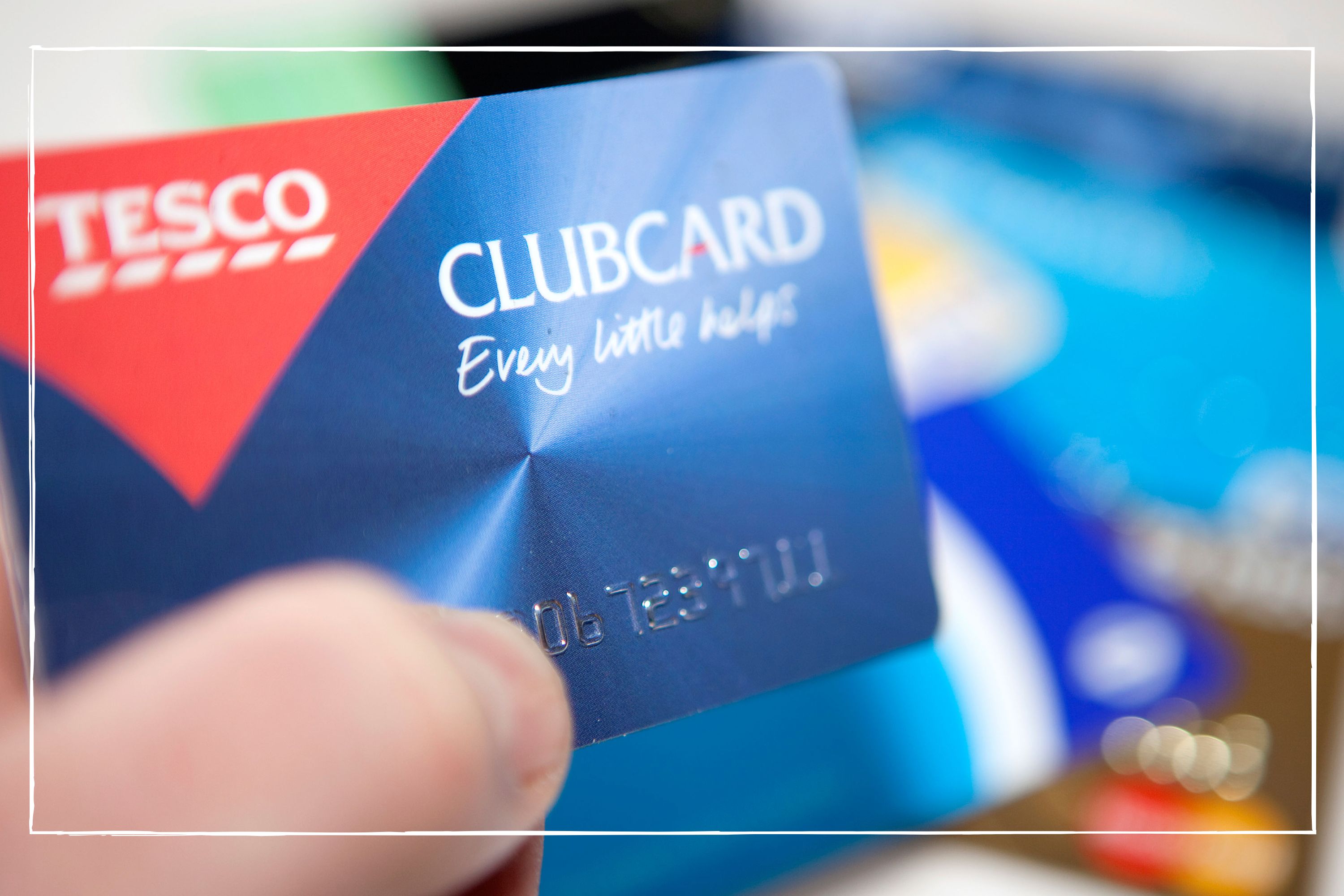 Tesco vouchers expiring? Use this simple trick to make them last longer
Tesco vouchers expiring? Use this simple trick to make them last longerWe reveal a clever way to help make your Tesco Clubcard vouchers last longer
By Rachel Wait Published
-
 Where do kids eat free (or for £1)? 31 places children can get cheap food this summer 2024
Where do kids eat free (or for £1)? 31 places children can get cheap food this summer 2024Where do kids eat free (or for £1) in the UK during the summer holidays? From Bill's to YO! Sushi, we reveal where to eat free or cheaply.
By Selina Maycock Last updated
-
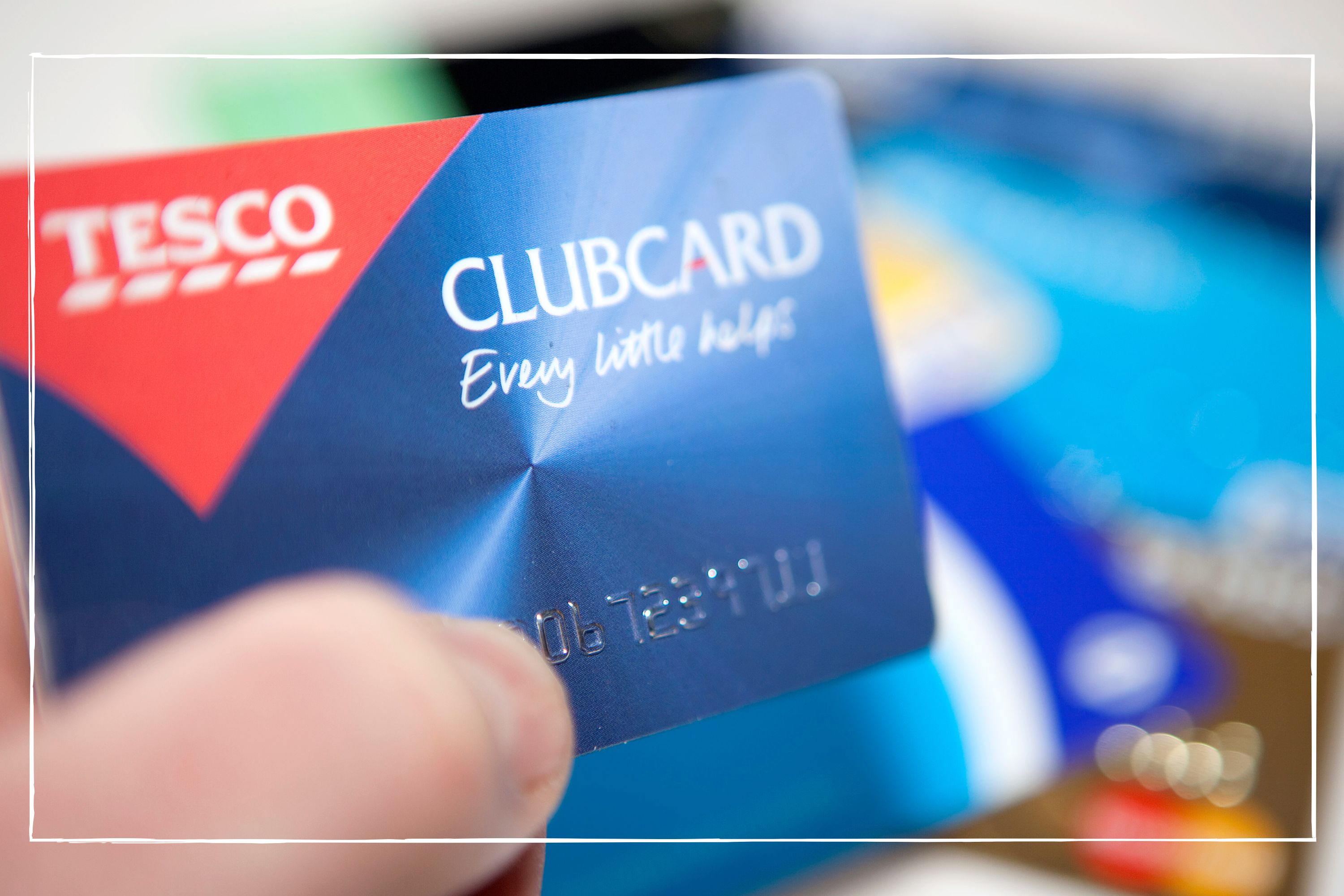 I'm a money expert and a mum, and this simple hack has saved me £495 so far this year
I'm a money expert and a mum, and this simple hack has saved me £495 so far this yearOur money expert reveals her #1 money saving hack - and it's so simple!
By Rachel Wait Published
-
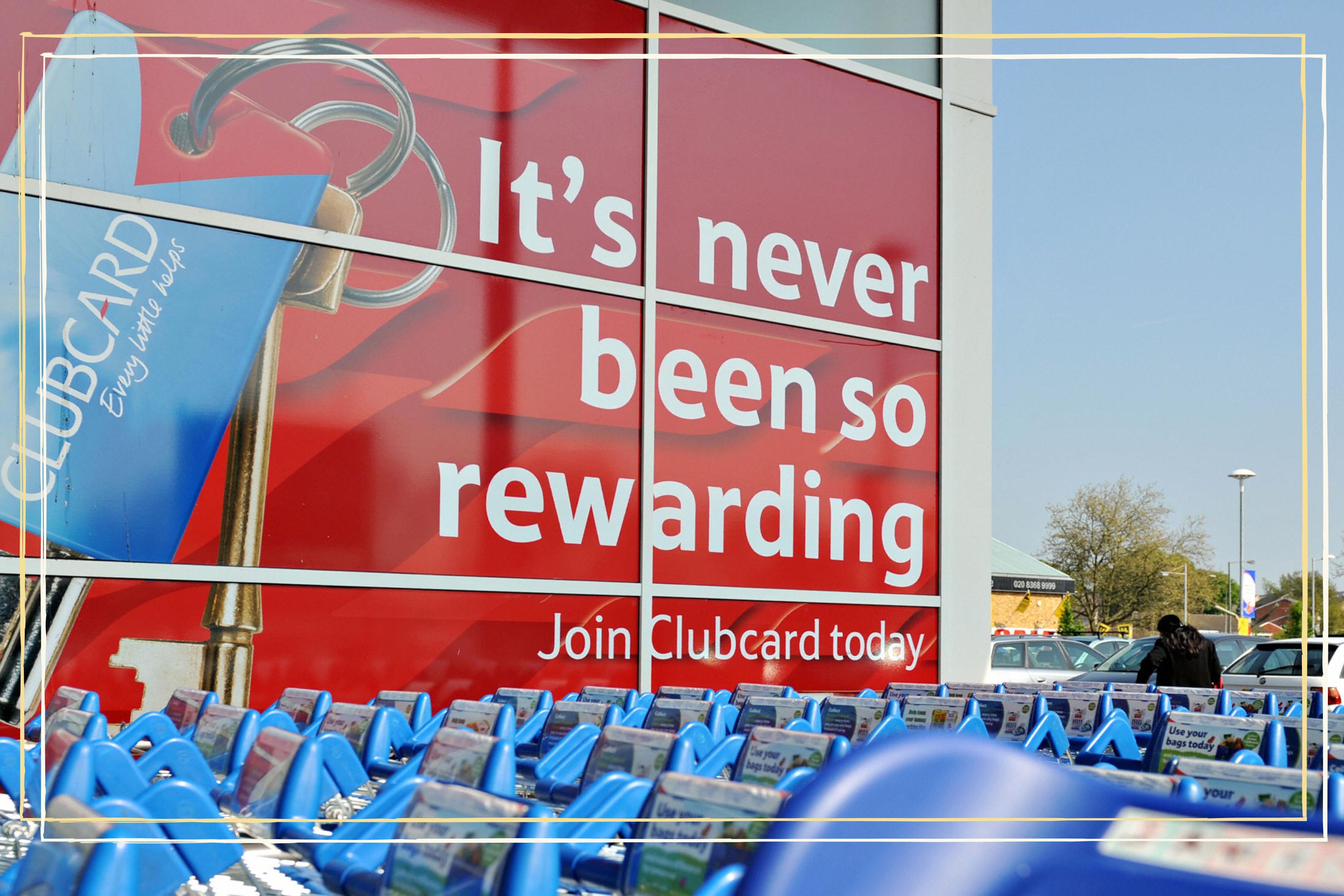 Tesco Clubcard set for major change as customers warned to use up vouchers
Tesco Clubcard set for major change as customers warned to use up vouchersThe value of Tesco's Clubcard vouchers will change on June 14, so it's important to use up your remaining rewards
By Emma Dooney Published
-
 How to get free baby formula if you need it and can't afford it
How to get free baby formula if you need it and can't afford itWe look at how to get free baby formula for parents and caregivers who are struggling with the high cost of living
By Emma Lunn Published